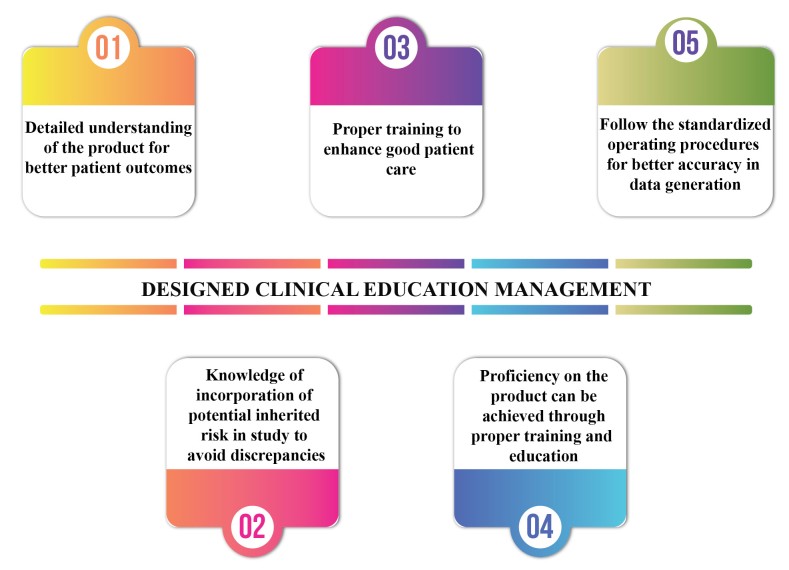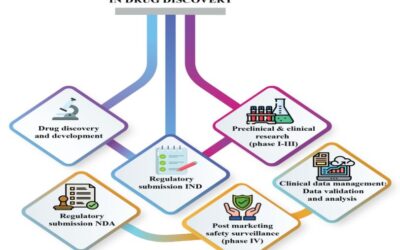Clinical Education Management for Evolving Clinical Environment
Clinical Education is crucial for healthcare professionals, nurses, pharmacists and physicians for proper maintenance, development and improvement of skills and knowledge regarding the efficiency, comfort and safety of the product. This solves half the equation when it reaches to further enhancement of the delivery of care. However, most often the caregivers overlook to educate the concerned staff in the clinical study regarding the proper use and maintenance and application of the device/drug. The framework of clinical education management emphasizes the importance of wide stakeholder engagement including every sector relevant to training health professionals in the country. The guiding principles include shared vision, responsive adaptability, continuity, integration and social accountability.
Why is it essential to conduct clinical education?
Clinical education is becoming indispensable as there is a steady migration of the care procedure from inpatient healthcare structure to outpatient settings. The expertise and knowledge can be shared through online forums with the customers where there can be a healthy interaction, thus enhancing the quality of care. The non-acute care teams must possess scalable education alternatives emphasizing the evolving clinical circumstances. Every clinical study site has to fulfill its own requisites; hence a flexible education option is prioritized for the healthcare staff. In-person on-site clinical education, virtual education as well as on-demand education options should be provided.
Focus of clinical education
Clinical education should provide the following benefits:
- Help the staff to understand the best to incorporate the facilities and workflows accomplishing a better care experience with fruitful patient outcomes.
- The healthcare staff should understand the experience of patients and the providers properly about how medical customers can use the drug/ technology of the device to enhance the quality of care.
- Healthcare customers should be trained properly on the standardized operating protocols and maintain accuracy in the records without any discrepancies.
- The inherited risk, for example, blood pressure is the inconsistent performed test in clinical environment. American medical guidelines have to be strictly followed to help minimize the potential inherited risk. Clinicians should be properly trained to ensure accurate, consistent data generation.
- While implementation of a new device, the proficiency can only be achieved through proper training and education. Therefore, all the caregivers and associated bodies must gain detailed knowledge of the product associated with clinical trials.
DESIGNED CLINICAL EDUCATION MANAGEMENT
Key tips for clinical education
- The history and physical findings have to be discussed in a summarized form briefly.
- Differential diagnosis has to be narrowed down to 2-3 relevant potentialities.
- The preceptor has to be probed by questions regarding uncertainties, hassles or possible replacements.
- Patient problem management has to be focused.
- A case-related issue has to be selected for self-directed learning.
Clinical Education Management at WorkSure®
WorkSure® has a highly efficient and expert team who bestows key stakeholders with an overview and analysis of the educational landscape with the concerned objectives and strategies for science courses and programs. The educational need is accomplished and target educational plans are designed with efficacy. Detailed clinical educational models encompassing live programs for physicians/ medical practitioners/ healthcare students are ensured by the team. The efficacy of the educational programme is measured and proper report for individual course is documented. WorkSure® team plays the role of clinical resource within the organization and the external stakeholders and ensures to deliver input and feedback regarding educational pathways planning. WorkSure® helps in maximizing the management of marketing potential and enhances the medical expertise throughout the organization with sufficient knowledge-based training programs for the healthcare, biotechnology, biopharmaceutical and medical device industries.



